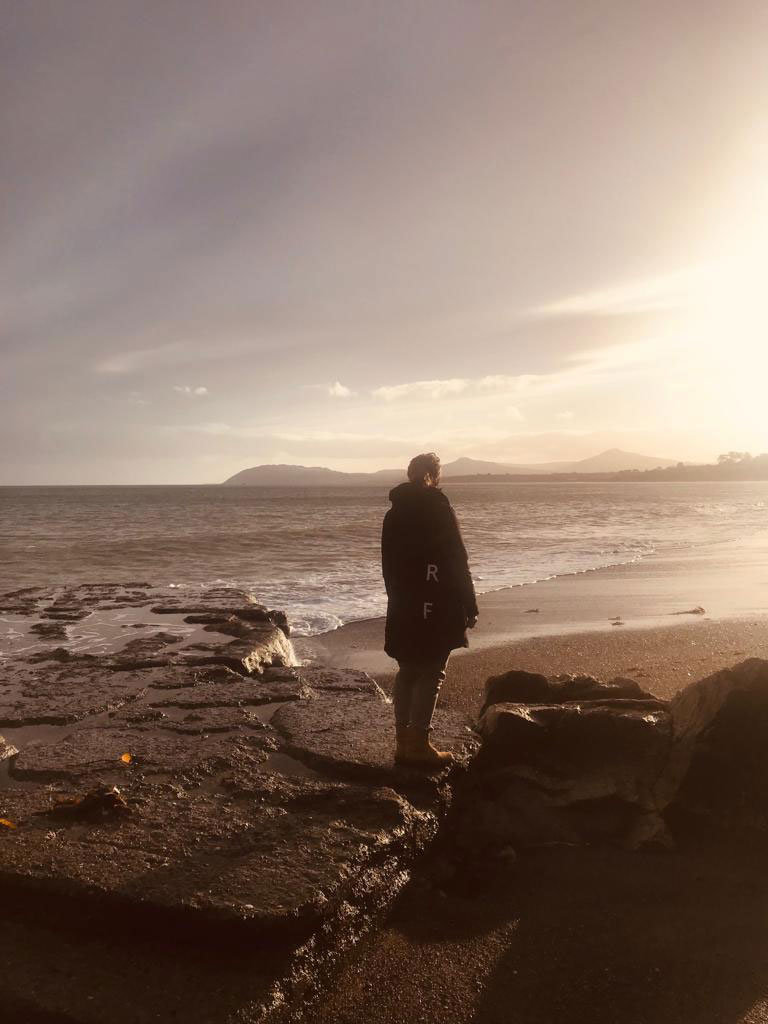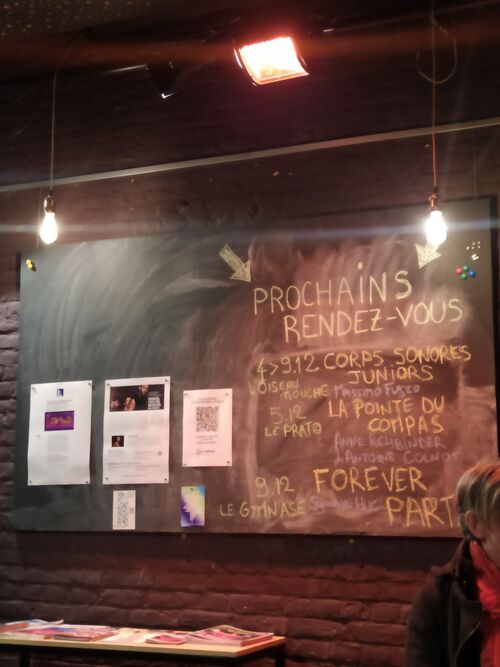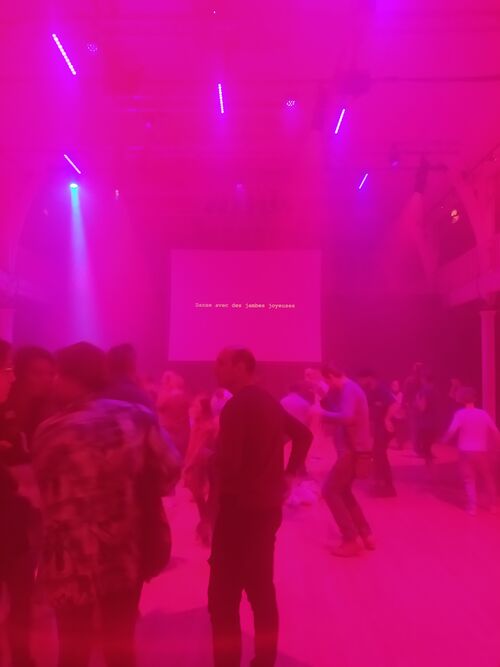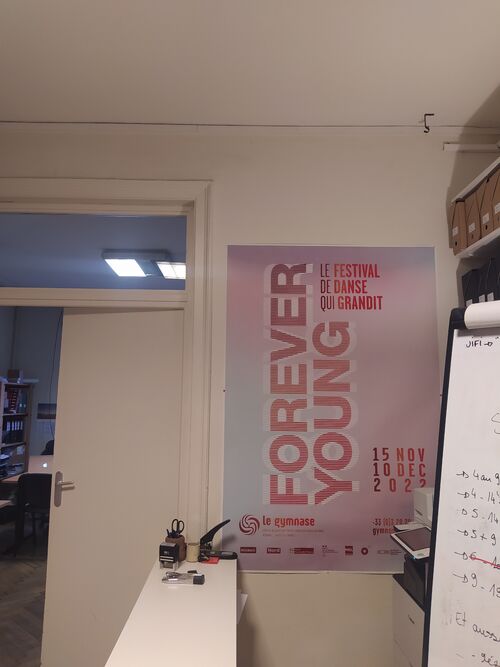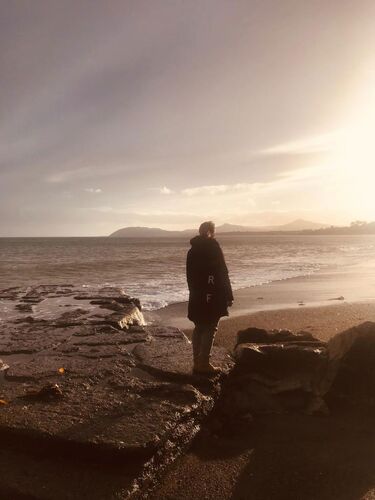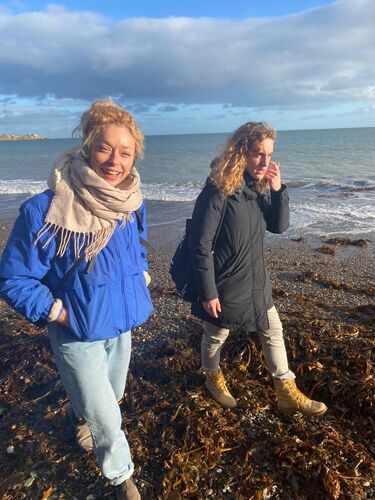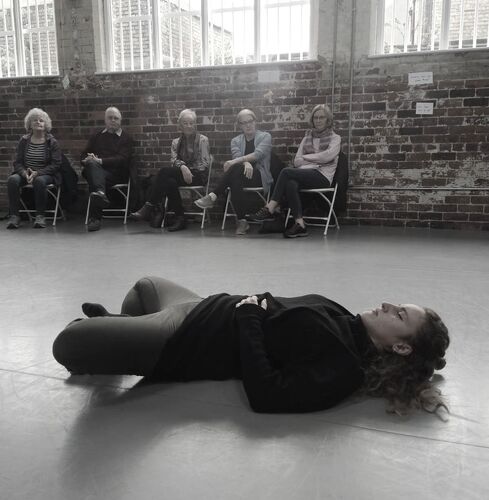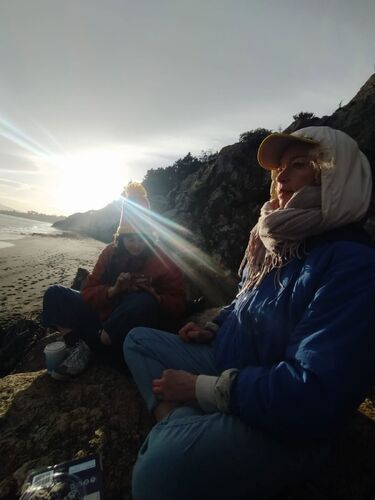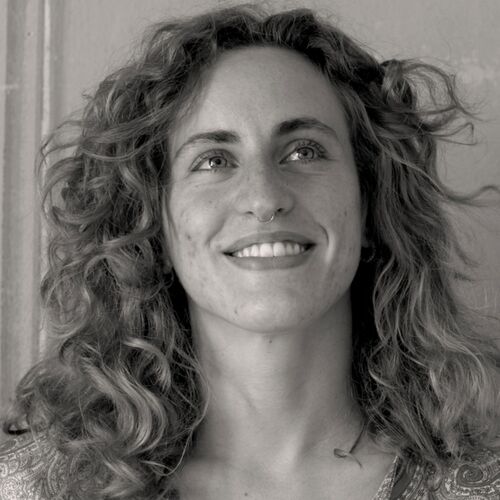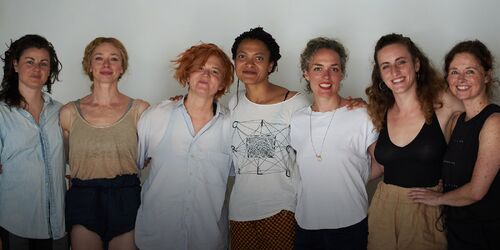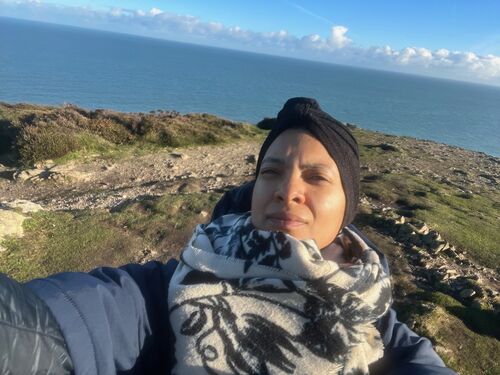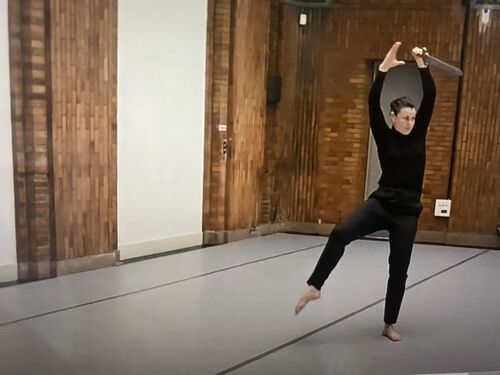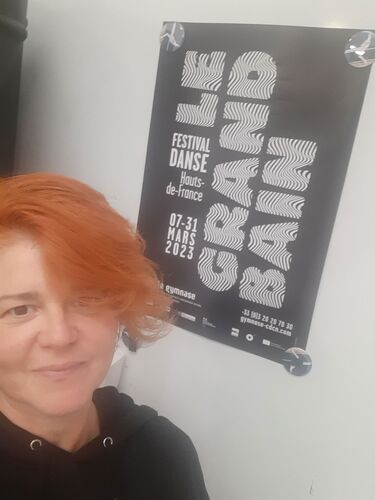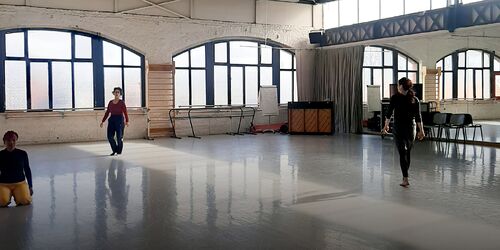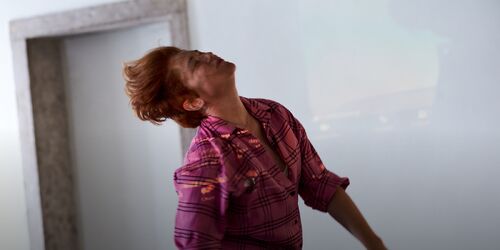Vittoria Caneva
Italian Dance Artist
2 - 16 DECEMBER, 2023.
Residency at Le Gymnase CDCN, Roubaix
The final CHOREOGRAPHY CONNECTS residency of 2023 took place at Le Gymnase CDCN in Roubaix as Vittoria Caneva settled in for her second residency period. Reflecting on her time in France, she sent on the following:
Letting go, building again, studying the surfaces of the body, where the voice is: in a delicate and solitary way, I had the chance to focus on these themes and enrich my own dancing practice. On the other side, I find myself welcomed by a warm and friendly community, by witnessing inspiring works, dancing together with beautiful human beings, and exchanging ideas and perspectives with international artists.
21 november - 3 december 2022
Inaugural Residency at CoisCéim Dance Theatre, Dublin.
To connect with Vittoria’s interest in working with older communities and people with Parkinson’s this residency included encounters with Olwyn Lyons, leader of the Dance for Parkinson’s class at Dance Ireland and Mia Di Chiaro at CoisCéim Broadreach’s Weekly Wednesday class at the Carmelite Community Centre, as well as creative exploration on and offsite with Irish project artists Justine Cooper and Aoife McAtamney. It culminated with an invited sharing on 2 December. In Vittoria's words, the residency enabled me to see where my practice is at the moment – where it is going and how I might remove barriers in the development of my unique choreographic fingerprint…provided the tracks on the journey to owning my own care in terms of sustainable practice…
Credits
Partners
OperaEstate/CSC (Comune di Bassano del Grappa)
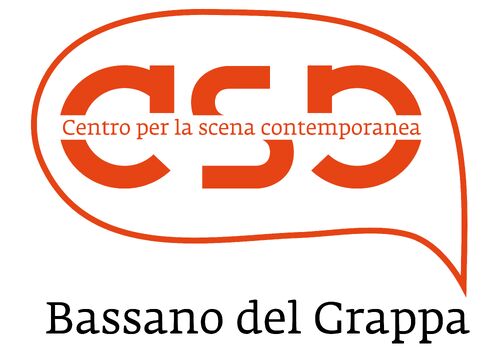
Part of the Municipality of Bassano del Grappa, the CSC Centro per la Scena Contemporanea is a dynamic dance house dedicated to the development of the culture of contemporary dance in the Veneto Region, while the Operaestate Festival involves 35 cities and presents over 100 multidisciplinary performances and events each season in theatres, castles, parks, villas, site specific locations and museums of the territory. The CSC is supported by MiC (the Italian Ministry of Culture), and many of its international projects and cooperations are supported by the Creative Europe, Europe for Citizens and Erasmus+ programmes of the European Union. It is member of the European Dance Development Network (EDN) and of Aerowaves, in constant dialogue with dance organisations in Europe; and it is also part of the Anticorpi XL network: the very first Italian network for emerging contemporary dance artists, involving 37 programmers from 15 different regions, and including projects supporting the artists mobility and creative researches. In recent years, it has started dialogues with many European and extra-European partners.
The CSC is devoted to the artistic development, community projects, productions, promotion of artistic mobility. It offers more than 35 residencies to Italian and international artists every year. It is committed to developing new and enhanced ways of engaging participants and audiences whilst continuing to focus strongly on building a sustainable future for dance as the Italian leading supporter of dance artists. It is committed to transforming and enriching lives through dance, to shaping where dance is going next.
Le Gymnase CDCN

For forty years, Le Gymnase CDCN has been supporting and creating a network within the dance sector in and around Lille, as well as regionally, nationally and internationally. At the heart of its activity is its support for artists and audiences. Le Gymnase is one of twelve National Centers of Choreographic Development (CDCN) in metropolitan France. As a CDCN, Le Gymnase’s guiding principles are based on: supporting artists, working to raise awareness and mediation, professional training, research,· dissemination of dance and regional outreach.
Every year, around 120 events are staged for the public, interspersed with regular outputs from residencies and shows with our programming partners. Le Gymnase also has two major events in its programme: festival Le Grand Bain - plural, diverse and innovative program, with creations, in-situ shows, multidisciplinary proposals, and the festival Forever Young, the first dance festival for children and young people created in France in 2006.
Le Gymnase also joins forces with an artist for a period of 3 years –and currently Silvia Gribaudi from january 2024 – working on co-productions, dissemination, masterclasses and participatory projects with the associate artist and boosting their artistic presence in its area.
One particular historical and organic focus for Le Gymnase is its involvement in mediation working with the sectors of education, social work and health, using different tools and educational packs.
Another example of this is the LOOP network that Le Gymnase runs, a professional dance network designed for children and young people that currently comprises 24 organisations. This network is involved in sharing resources and developing educational tools, and is also a space of artistic exchanges, and commissions artists for shows for young audiences.
An international outlook is translated into each of our activities, such : · expanding the LOOP network to festivals and initiatives intended for children and young people on a European scale· Being more involved in producing and disseminating the work of international artists. · Establishing a career path for artists with our European partners, Becoming more international also crosses over into our mediation projects through our involvement in international cooperation projects such as Dance Well, which unites eight European partners to work on long-term activities from August 2022 to July 2025.
